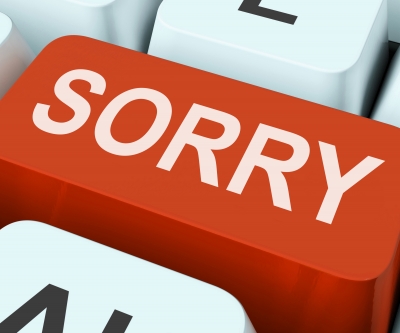


The Right (And Wrong) Way To Apologize For Dumb Things You Said Online
By Brittany Wong, writing for HuffPost…
The Celebrity Apology™ is having a moment, with famous person after famous person apologizing for stupid things they said online in years past. Just this year we’ve had journalist Alexi McCammond apologize (and resign from a Teen Vogue editor-in-chief position) for anti-Asian and homophobic tweets. We’ve had Chrissy Teigen apologize for cyberbullying and Billie Eiliish apologize for saying an anti-Asian slur. (And let’s not forget their predecessors in online apologizing, Kevin Hart and Blake Shelton among them.)
These stories made headlines for days ― Teigen’s saga is still very much in the news, mostly because she continues to comment about being part of a cancel culture. Each of these women were Twitter’s Main Character but in an even more outsized way than usual. (As the internet axiom goes, “Each day on Twitter there is one main character. The goal is to never be it.”)
Why have so many of us found these social media scandals compelling? Perhaps it’s because “cancel culture” has been cast as some great threat to modern life, and these celebrities seem to be living it. (Though it’s debatable if anyone we discuss in this story has been truly “canceled.”) Perhaps it’s because we all need something to talk about ― anything ― in the midst of a pandemic.
We also wonder how we’d respond if we were in their shoes, if an incriminating screenshot got out and scores of people saw it. We’re prone to worry: Is there anything vaguely incriminating in my past?
“These celebrity stories remind us that whether someone is a business owner, an executive or even a low-profile private individual, they should do a periodic assessment of their online profiles to make sure they don’t have any content online that may be problematic or might not have aged well,” said Evan Nierman, founder and CEO of crisis communications firm Red Banyan and author of the forthcoming crisis management guide “Crisis Averted.”
Here are their do’s and don’ts ― though hopefully you’ll never have to use this advice.
You’ll want to accomplish these three goals (click here for the rest).